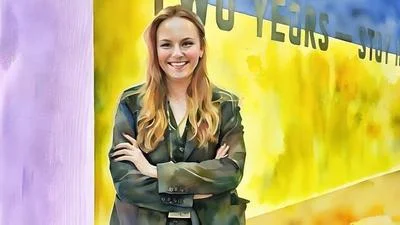RICHLAND, Wash. - EM Office of River Protection (ORP ) contractor Washington River Protection Solutions (WRPS) is developing innovative, collaborative ways to tap into the future workforce.
In addition to the annual group of summer interns from colleges around the country, up to 10 students from Washington State University’s (WSU) Tri-Cities campus will be selected for unique, year-long, paid internships. The students, who have junior, senior or graduate status during the next academic year, will receive full-time summer employment and continue working part time during the school year in their chosen fields. WRPS intends to offer full-time employment opportunities to successful interns when they graduate.
“This partnership with WSU Tri-Cities brings a whole new dynamic to workforce development," said Wes Bryan, WRPS president and project manager. “This puts us on the right path to establishing the next generation of workforce that will advance our cleanup mission."
As part of the partnership, WRPS donated $250,000 to WSU Tri-Cities to fund program costs.
Recently, students at WSU Tri-Cities also worked with ORP contractors to develop a new logo for a committee that works to recruit disabled and veteran job candidates. Columbia Basin for an Accessible and Veteran-Friendly Workforce (CBAVFW) is a collaborative organization with a goal of helping disabled community members and veterans find employment. The collaboration includes human resources professionals from several Hanford Site contractors and subcontractors, Columbia Basin College, Pacific Northwest National Laboratory, WorkSource Columbia Basin and local veterans’ organizations.
When representatives from CBAVFW reached out to WSU Tri-Cities for help with branding, Anna Plemons, associate vice chancellor of academic and student affairs at WSU, suggested turning the request into a class project to give more than two dozen students the opportunity to work on a client-driven project.
“We presented this to a class of our Digital Technology and Culture (DTC) Program students who are learning to be culturally responsive in their approach to creative products, and this provided a perfect career-connected learning opportunity," said Plemons. “This project was challenging for students because they wanted to respectfully represent military service and disability with inclusivity without being cliché."
When they presented the project to the DTC class, CBAVFW representatives were unaware that several of the DTC students are military veterans. Plemons said the chosen logo was designed by a small group that included a U.S. Coast Guard veteran.
“These applied learning experiences provide an incredible opportunity for students to contribute to the overall EM mission of environmental cleanup and social justice as we work to connect protected workers with living-wage jobs," said Mary Kruger, EM deputy assistant secretary for resource management.
Source: U.S. Dept. of Energy, Office of Environmental Management









